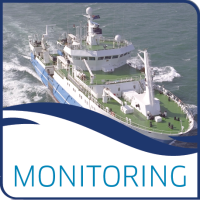Scottish Marine and Freshwater Science Vol 7 No 22
As a precaution, the Environment Group requested samples to be collected from three mussel and three salmon aquaculture sites (Figure 1). The shellfish samples were collected by a Food Standard Scotland (FSS) sampling officer on 10 August 2016 and again on 16 and 23 August 2016. Details of the sampling sites are shown in Table 1. Salmon samples were taken from fish farms, detailed in Table 1, by the Local Authority in the area on 11 August 2016 and again on 16/17 and 23 August 2016. Approximately 30 mussels of a similar size range (shell length 40-60 mm) were collected at each site. The shells were rinsed in potable water to remove any surface debris, wrapped in aluminium foil and sealed in polythene bags which were then appropriately labelled. Samples were sent to Marine Scotland Science (MSS) in cool boxes with ice packs. Whole individual salmon were wrapped in tin foil, stored on ice, along with ice packs and returned to MSS. Samples arrived at MSS the day after collection.
Data and Resources
| Field | Value |
|---|---|
| Publisher | |
| Modified | 2020-01-07 |
| Release Date | 2016-11-28 |
| Identifier | b4286cd9-0e17-4100-a0cb-271691e42ff5 |
| License | UK Open Government Licence (OGL) |


